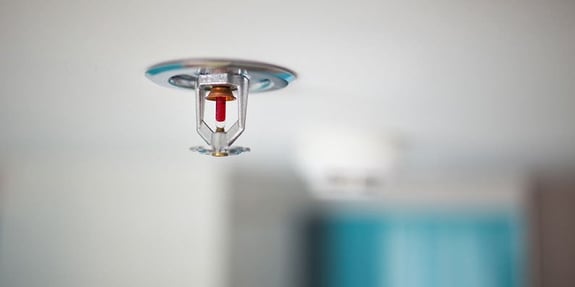There appears to be some confusion surrounding the compliance date of the Engineered Life Safety System for those condominium associations that previously voted to opt out of the requirement to install condominium fire sprinkler retrofit. What is not confusing is that the safety of all occupants living in high-rise condominiums is paramount. No one wants to be responsible for death or injury caused by an incident that can be minimized with necessary precautions. How should the board of directors of a “high-rise” condominium balance the needs for fire safety against the considerable expense incurred in the implementation and installation of fire safety systems?
 A high-rise building is a building where an occupiable floor is greater than seventy-five feet (75’) above the lowest level of fire department vehicle access. Pursuant to Florida law, condominiums that are considered high-rise buildings are required to have, or otherwise install, a fire sprinkler system, unless the condominium association had previously opted out, or is otherwise exempt, as further addressed below, by following the proper statutory protocol for which the deadline to do so has long since passed. However, for those high-rise condominiums that did successfully opt out, the association is still responsible for the installation of an Engineered Life Safety System (the “ELSS”).
A high-rise building is a building where an occupiable floor is greater than seventy-five feet (75’) above the lowest level of fire department vehicle access. Pursuant to Florida law, condominiums that are considered high-rise buildings are required to have, or otherwise install, a fire sprinkler system, unless the condominium association had previously opted out, or is otherwise exempt, as further addressed below, by following the proper statutory protocol for which the deadline to do so has long since passed. However, for those high-rise condominiums that did successfully opt out, the association is still responsible for the installation of an Engineered Life Safety System (the “ELSS”).
A caveat, and for some condominium associations, a blessing, is that the fire sprinkler system (or ELSS) is not required if every unit in the condominium has exterior walkway access. Therefore, if the only access into the condominium unit is through an interior hallway, the condominium association would need to install a fire sprinkler system (or have already opted out and thereby need to comply with the requirements of the ELSS).
Section 718.112(2)(l), Florida Statutes, is quite clear on the requirements to install a fire sprinkler system, but the statute does not address the condominium association’s requirements for the implementation of the ELSS – that comes from the Florida Fire Prevention Code (the “FFPC”). The FFPC defines an ELSS as a system which contains any or all of the following systems:
1) partial automatic sprinkler protection,
2) smoke detection alarms,
3) smoke control,
4) compartmentation, and/or
5) other approved lifesaving systems.
An ELSS must be developed by a registered professional engineer experienced in fire and life safety system design and authorized by the local compliance authority. Typical examples of ELSS within a high-rise condominium building could be a partial fire sprinkler system that serves the common areas, fire and smoke alarms that are in compliance with the local fire authority standards, and fire proof walls, floors and corridors designed to prevent the flow of the fire and smoke throughout the condominium building.
As to any high-rise building required to install the automatic fire sprinkler system that did not opt out, the FFPC requires that any condominium that meets the definition of a high-rise building, must, by December 31, 2019, have installed the automatic fire sprinkler system. As to those who opted out, the exact date for ELSS compliance is anything but clear. The Condominium Act does not provide a date, and while the FFPC provides a clear deadline for the installation of the automatic fire sprinkler system, the FFPC does not patently provide a similar date for the installation of the ELSS. Some lawyers and fire safety professionals take the position that, because the ELSS is a substitute for the automatic fire sprinkler system, December 31, 2019 is, therefore, the ELSS compliance date. However, others may take the position that the lack of patent clarity in the FFPC means no deadline is provided.
Whether the local fire safety authorities will actually interpret and enforce the Florida Fire Prevention Code to require an ELSS approved plan, or ELSS completed installation by December 31, 2019 or even still, take the position that no ELSS deadline is provided at all is anyone’s guess. The answers might even vary by jurisdiction. What is clear is that:
1) The Florida legislature needs to address the ELSS compliance deadline to provide clarity for the betterment and safety of all of Florida’s high-rise communities; and
2) Any board member of a high-rise condominium association with questions regarding any of the issues addressed herein needs to consult with both their association’s legal counsel and with the local fire safety officials with jurisdiction for enforcement of the ELSS.
Jeffrey Rembaum, Esq. of Kaye, Bender, Rembaum attorneys at law, legal practice consists of representation of condominium, homeowner, commercial and mobile home park associations, as well as exclusive country club communities and the developers who build them. He is a regular columnist for The Condo News, a biweekly publication and was inducted into the 2012, 2013 & 2014 Florida Super Lawyers. He can be reached at 561-241-4462.

